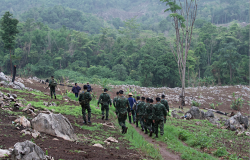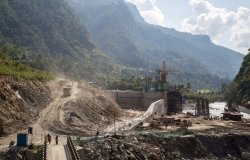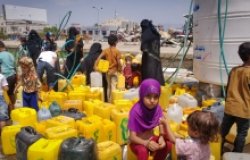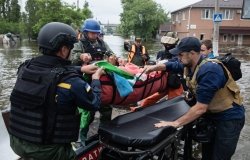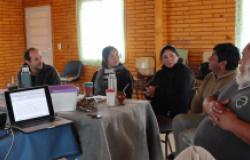Youth Bulge, Underemployment Raise Risks of Civil Conflict
Security brief, online chat examine connections between population and conflict
A Global Security Brief written by Richard Cincotta, a senior research associate at Population Action International and co-author of The Security Demographic: Population and Civil Conflict After the Cold War, posits that a "youth bulge" (a high proportion of 15-to-29 year olds relative to the adult population) can lead to high unemployment, which can facilitate recruitment into insurgent organizations and extremist networks or into militias and political gangs.
Cincotta argues that the following efforts could help mitigate the risks posed by the youth bulge and underemployment:
The brief draws on "Examining the Connections Between Population and Security," a chapter in Worldwatch Institute's State of the World 2005. Cincotta also authored a commentary in ECSP Report 10, "Demographic Security Comes of Age."
This month, Worldwatch Institute's website turns the spotlight on Population and Security with a special feature that looks at facts and trends in aging, urbanization, HIV/AIDS, and water and food security.
Worldwatch also hosted a live online discussion with Cincotta, who answered questions about China, Nigeria, water, oil, environmental degradation, carrying capacity, and Muslim women's access to family planning. You can read the archived discussion at http://www.worldwatch.org/live/discussion/104/.
Related Links
Related Program

Environmental Change and Security Program
The Environmental Change and Security Program (ECSP) explores the connections between environmental change, health, and population dynamics and their links to conflict, human insecurity, and foreign policy. Read more
